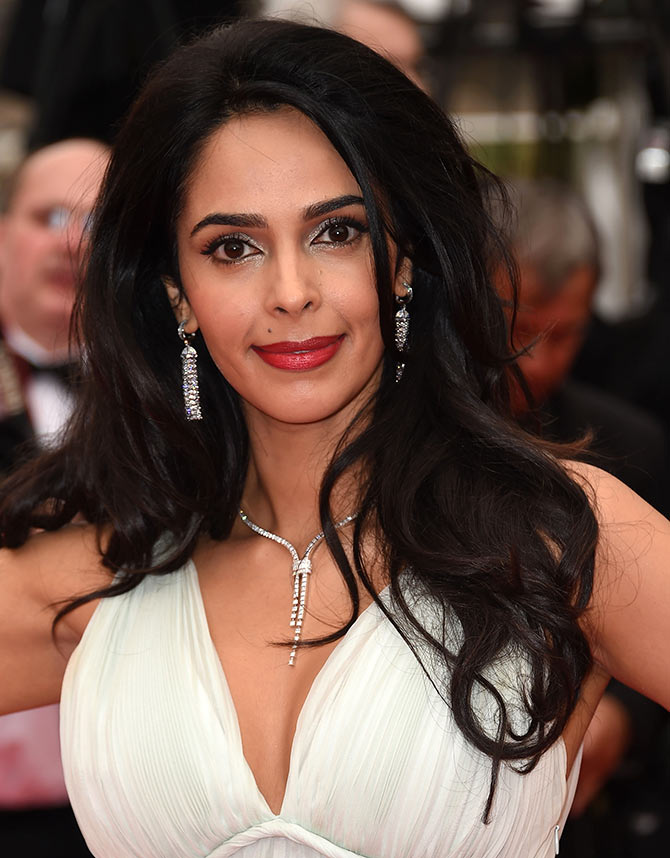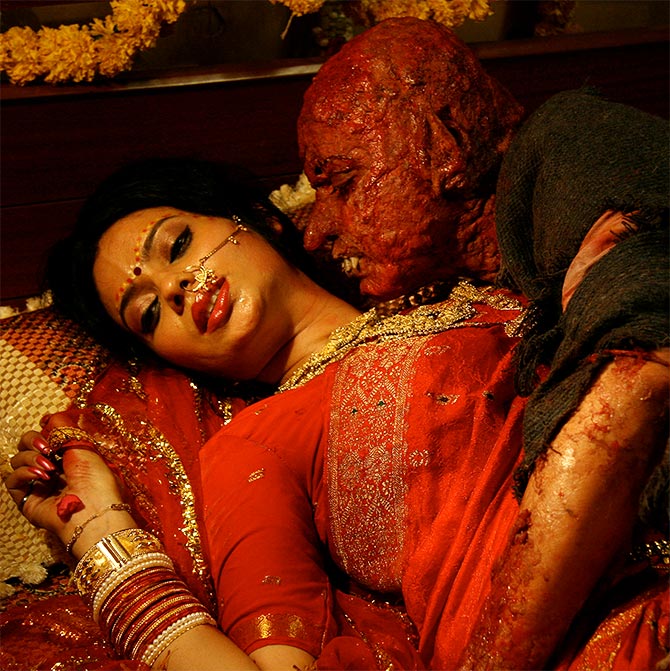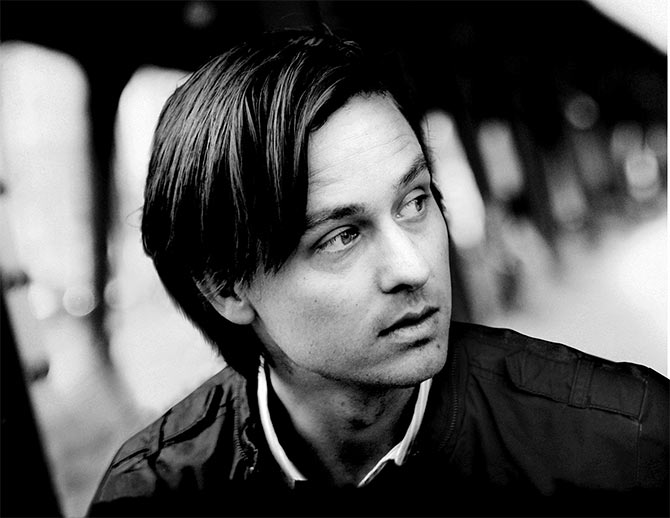 | « Back to article | Print this article |
Bollywood bravado, and real cinema
Last Wednesday I took a 24-hour trip to Washington, DC. The next day I was a guest on Al Jazeera’s talk show The Stream and they wanted me to be in the city the night before.
The show -- Women Through a Bollywood Lens -- also featured actress Mallika Sherawat, who appeared from a studio in Los Angeles, and journalist Anna M M Vetticad and filmmaker Madhur Bhandarkar, both appearing via Skype from India.
I was the only in-studio guest along with the two anchors, Femi Oke, who is the main host of the show, and Malika Bilal, who follows audience comments via social media.
It was all very cordial as we discussed the basics of Bollywood cinema until the conversation shifted to item numbers. I knew that would be the controversial part of the discussion.
Both Bhandarkar and Sherawat defended Bollywood’s item numbers with a lot of passion, calling them entertainment and just song and dance. Sherawat kept asking, “What is an item number?” as if it was the first time she had heard the term.
Vetticad and I maintained that item numbers -- now almost a must in every Bollywood film -- were demeaning to women who in their skimpy clothes were almost treated like a commodity for leering men.
While I said censorship was not the solution -- in fact, I am personally in favor of nudity of any kind, if the narrative requires it -- Vetticad and I felt that Bollywood filmmakers should look deep inside their hearts to see what kind of a message they were sending out.
It was mostly a fun conversation -- full 45-minutes of it -- with clips of many item numbers.
At one point Sherawat got really carried away when she compared her position on women’s rights to that of Nelson Mandela’s struggle against apartheid.
I was speechless, but Oke asked her: “So now you likening yourself to Nelson Mandela?” To that Sherawat responded: “Why not? And do you know that Nelson Mandela was inspired by an Indian -- Mahatma Gandhi?"
That was too much for any of us to handle and we let it go, without getting personal.
The show ended with each of us recommending our favourite Bollywood films: Chak De India: Bhandarkar; Chandini Bar: Sherawat; Queen: Vetticad. Band Bajaa Baaraat was my choice.
Please click Next to see more.
Bollywood bravado, and real cinema
On June 20, an Indian indie film, Miss Lovely, opens in New York City -- the second such opening this year after the success of The Lunchbox.
Directed by Ashim Ahluwalia, Miss Lovely is a 2012 film that played at the Cannes Film Festival and then at the Toronto International Film Festival, as part of that year’s city-to-city program, with Mumbai being the sister city of the festival.
Miss Lovely is a dark film that examines the B-grade Hindi film industry that used to churn very poor quality soft porn and horror films. The film looks at the dark industry in an entertaining manner through the lens of two brothers who work on those films.
Nawazuddin Siddiqui, who was recently seen in The Lunchbox and has become the leading indie film actor in India, plays the younger brother.
It is a rare film with a unique story and the vast cast of characters all seeming very authentic as if they were plucked from the soft porn industry and are playing their real life selves.
Miss Lovely is a must see film.
Bollywood bravado, and real cinema
Last week I attended the press screening of a quirky German film, A Coffee in Berlin.
Winner of the 2012 best film, director and actor awards given by the German film industry, Coffee is made in black and white and has a very approachable indie feel to it.
The film focuses on one day in the life of a 20-something German man, Nico Fischer, who has dropped out of college and is living on the edge of society with financial support from his father.
Although the film has a funny tone, Fischer goes through a downward spiral as his day progresses. All the time he is desperate for a cup of coffee, but the stars are not in his favor.
Coffee opened in New York City on June 13 and will surely charm audiences who enjoy intelligent foreign language films.


